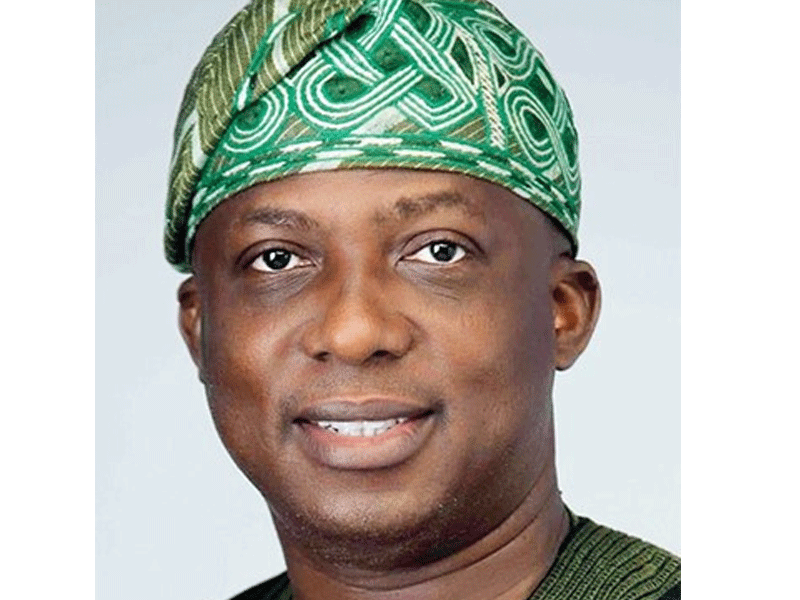Lagos State government on Sunday stated that it was committed to a comprehensive, multi-sectoral approach to ensure a clean, resilient and livable city, dispelling viral insinuations that the state is smelling.
In a press statement he issued, the state’s Commissioner for the Environment and Water Resources, Mr Tokunbo Wahab, reeled out practical measures the state is taking to demonstrate that the state is rather evolving and not smelling.
His words: “Lagos is not “smelling”, it is evolving -toward sustainable waste processing, modernised landfill management, cleaner waterways and structured sanitation systems.
“The present administration of Mr Babajide Sanwo-Olu remains steadfast in its commitment to building a cleaner, more sustainable city through strategic environmental initiatives.”
He argued that the state government is fully committed to environmental sustainability and had developed a comprehensive, multi-sectoral approach to ensure a clean, resilient and livable city.
He said “Waste and sanitation challenges in a rapidly growing mega city like Lagos require structural solutions-not sound bites or political rhetorics.”
Other measures undertaken by the state government, according to Wahab, include the installation of over 50 Air Quality monitors across the state at strategic locations to capture industrial, transport and household emissions.
Wahab said in line with the state’s THEMES plus Agenda, LAWMA had expanded waste collection services to hard to reach communities and in partnership with Ibeju Lekki local government, tricycle compactors have been introduced to provide waste collection services on a pay-as-you go model in areas with non-motorable roads.
READ ALSO: Air strike kills Hamas official in Gaza
The commissioner also revealed that the model would be expanded later this year with the introduction of 500 tricycle compactors across similar areas.
He explained that within the next 18 months, the state would close Olusosun and Solous 3 landfills, transitioning them into modern Transfer Loading Stations where waste would be sorted, compacted and redirected to recycling facilities.
He said Lagos was also advancing its Waste to Energy project in Epe that would process 2500 tonnes of Municipal solid waste daily and generate 60-80 megawatts of electricity, contributing clean energy to the Lagos power grid.
In addition to a ban on styrofoam food packs, the state had also commenced the phasing out of single use plastics while promoting sustainable alternatives and extended producer responsibilities, EPR, among manufacturers.
“The state government has signed multiple Memoranda of Understanding, MOU, with international partners to develop waste to resource initiatives that will ensure that Lagos remains at the forefront of waste recovery, recycling and energy generation,” he added.
Wahab maintained that in the past two years, industrial effluent discharge into the Lagos waterways had reduced by 25 per cent owing to the consistency of Lagos State Environmental Protection Agency, LASEPA, in regulating their discharge through permits, fines, penalties and outright publicized seals.
He stated that the state was already implementing bio- remediation techniques to improve surface water quality through natural purification processes to improve the quality of water in the lagoon and canals.
He informed that the state, through the Waste Water Management Office, LASWMO, has deployed three Modular Septage Pre-Treatment Plants, MSPP, enabling efficient treatment of fecal sludge before discharge into the Odo Iya Alaro water body.
He added that the LASWMO also enforced strict compliance among members of the Sewage and Wastewater Dislodgers Association of Nigeria to prevent water indiscriminate dumping of waste water and ensure best practices in sewage evacuation.
The commissioner stated that as part of the street sanitation exercise, 15,000 street sweepers were daily deployed across highways, inner roads and markets as well stronger enforcement of environmental laws.
“In addressing open defecation, the state is embarking on continuous sensitization and the construction of additional 150 public toilets which would be complimented by another 250 to be built through public private partnership,” Wahab explained.
Wahab stated that the present administration was also partnering local government areas and local council development areas to maintain the over 1710 public toilets across parks, markets and residential areas.
In order to make Lagos greener and healthier, Wahab said the state Parks and Garden Agency recently launched a “Trees for Lagos” campaign that would ensure the planting of an additional 50,000 trees in two years.
The trees will be planted in carefully selected locations on major highways, railway routes, industrial areas, public and private estates, schools and hospitals.














